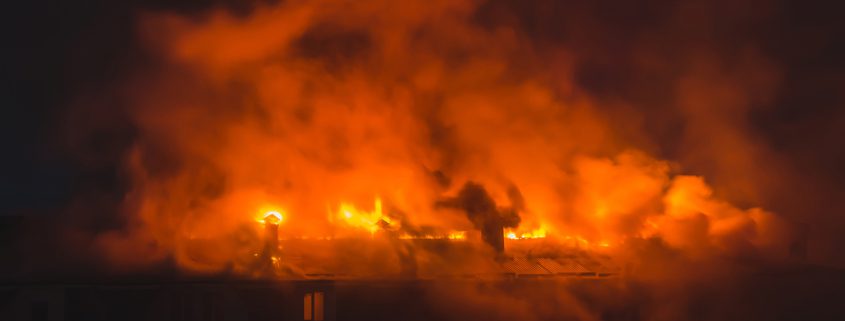Disaster Preparation Can Save Your Life
We’ve seen firsthand the devastation wrought by wildfires, earthquakes, and storms. This reminds us how important it is to prepare for a disaster, such as wildfires, floods, earthquakes, and even strong winds. Depending on the type of disaster, you can take a variety of actions; let’s look at some of the most important one. Always follow local, state, and federal authorities’ directions.
Prepare For Wildfires
- Clear dead plants from around your property. Regularly trim trees to keep branches at least 10 feet away from adjacent trees.
- Landscape with fire-resistant plants.
- Use fire-resistant construction materials, particularly on the roof.
- Use 1/8-inch to 1/4-inch metal mesh to cover all vent openings. Fiberglass or plastic mesh should not be used since they can melt and burn.
- Deck surfaces within 8 feet of the building shall be made of non-combustible, ignition-resistant materials.
- Ensure that your address is visible from the road.
- Follow all local building codes while maintaining driveways.
- Make sure you have enough garden hoses to cover your entire yard.
Flood Preparedness
- Make sure you’re familiar with the various evacuation routes.
- Determine whether you live in a flood plain and, if so, purchase flood insurance.
- Keep extra water on hand.
- Non-combustible or other certified materials should be used to construct surfaces within 10 feet of the structure.
- Check valves should be installed in sewage lines to prevent floodwater from backing up into your home’s drains.
- Waterproof your basement and foundation.
- Install water-detecting pumps in your crawl area and basement.
- Build flood barriers (levees, beams, and floodwalls) to keep floodwater out of your home.
Earthquake Planning
- Learn the basics of first aid and CPR.
- Establish a gathering spot for all members of the family.
- Locate utility disconnect switches.
- Make emergency contact lists, organize them on the internet, and save a paper copy.
- Make a household inventory
- Request an earthquake insurance quote from your agent.
- Secure shelves to the walls.
- Keep bulky or heavy items on the lower shelf.
- Anchor a water heater to the studs in the wall and fasten it to the floor.
Disaster Safety Tips in General
- Have food on hand for everyday needs for at least three days.
- Have three or four flashlights.
- Keep a well-stocked first kit.
- Make a go-bag for each member of the family.
- Have water for three to five days.
- Keep cash on hand.
- Can opener (non-electric).
- For emergency information, listen to a battery-operated radio or television.
- Keep an eye on the elderly and disabled, as well as children who may require particular assistance.
- Stay away from structures that have been damaged or destroyed.
- Use glow sticks to determine the depth of the water.
- Have goggles and air masks on hand for any family members within reach.
- Every six months or so, restock your supplies.
- Have a relative or friend from out of state act as a communication source.
- Make sure you have cell phone chargers on hand.
- Keep a supply of construction supplies on hand in case your home needs to be boarded up.
- Keep all critical documents in a fireproof safe, including your birth certificate, insurance, birth certificates, and other paperwork.
- Photograph all of the documents and save them to your phone. Alternatively, you can send copies to your phone.
For your protection and well-being, Oakwood Insurance Agency offers nearly every sort of personal insurance policy you may require. Please find a short but not exhaustive selection of our most frequent personal property, health, and life policies below. An Oakwood Insurance agent will explain our full range of insurance products and services during a personal consultation and create a tailored insurance plan with the right policies for your lifestyle, personal circumstances, and comfort level.




